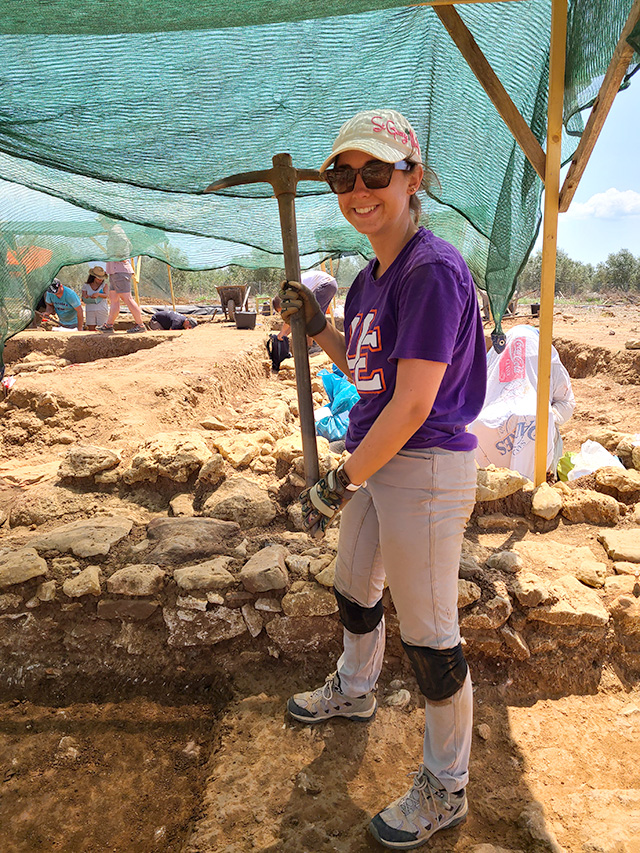Article Detail
UE Archaeology Students to Travel Internationally for Summer Excavations and Internships
Posted: Monday, May 1, 2023
Sixteen University of Evansville (UE) Archaeology students will make their mark on the international stage as they prepare for a summer full of experiential learning across five countries.
Seven students will be in Israel working on the largest Canaanite city. In the second millennium BCE, the city was comprised of an upper city (the acropolis) and a lower city. Ancient records show that the city was considered the southern-most Syrian urban center during the Bronze Age. Students will be partaking in efforts to excavate ancient artifacts at the University of Haifa Excavation site in the Lower City at Tel Hazor.
In Greece, one student will be working on the University of Missouri, St. Louis' Iklaina-Pylos Field School Archaeological Project, a lab located at the excavation site of a Mycenaean palace. In Italy, one student will assist in the excavation of an ancient palace through the University of Massachusetts Amherst's Poggio Civitate Archaeological Project. Also in Europe, one student will travel to Portugal to assist in excavation at the Caladinho Archaeological Project, a rural Roman fort.
In the United States, students will be working at sites across the nation. One student will help to locate the remains of an 1840's farmstead in Illinois built by a freed slave. A second student will assist at the Rhode Island Marine Archaeological Project, where they will process finds from the excavation of two Colonial-era shipwrecks.
Additional students will take on internships at Willard Library in Evansville, the Evansville Museum of Arts, History, and Science and at the Maritime Museum Louisiana, in Madisonville, Louisiana.
"While the work of summer archeological students may seem small in scope, the impact of their contributions can be felt on an international level," said Dr. Alan Kaiser, Professor of Archaeology. "Through their hard work and dedication, these students help to uncover pieces of our shared human history and bring new insights to the forefront. Whether they are assisting with excavations, cataloging artifacts, or conducting research, the efforts of these students contribute to a greater understanding of our past and inform our present and future. Their work is part of a larger effort to uncover the mysteries of our world and connect us to our collective past."
Office Phone
812-488-3802
Office Email
uerelations@evansville.edu
Office Location
Room 234, Olmsted Hall

